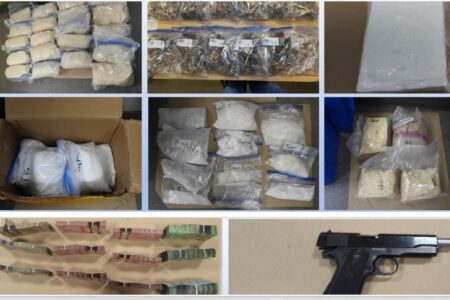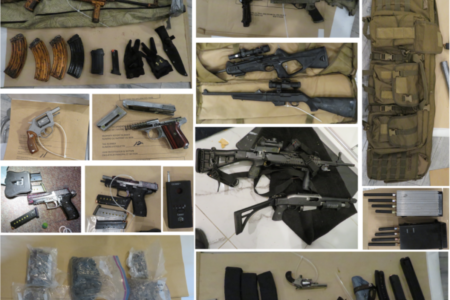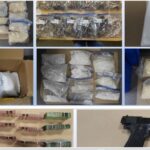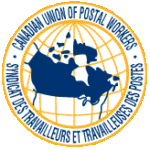Nelson Police Department and RCMP weigh in on organized crime and marijuana in our region
Part 1: Organized Crime and how police are keeping Nelson safe
With seemingly more violent crimes like stabbings and ever-larger drug busts and cross-border seizures happening in the Queen City over the past year, The Nelson Daily was wondering, is organized crime present in Nelson and is it increasing?
Nelson Police Department police chief Wayne Holland and RCMP Kootenay Boundary regional detachment staff sergeant Dan Seibel, say yes it is present but they want to make Nelson and our region as unattractive as possible to criminals looking to do business on our streets.
“Overall we feel that Nelson is a very safe place to live in,” said Holland.
“Certainly we are visited and there is a presence, although it is quite nomadic. But it is a regular presence over the past few years of organized crime groups and significant individuals coming here and doing business in Nelson . . .. It’s been here and it will likely continue.”
But the Nelson Police Department is watching and they contribute to a province-wide database to share that information and help with an annual threat assessment document.
That intelligence sharing and gathering enable busy police departments to maximize their efforts and limited resources.
“When they do show up we know who they are and we have a great network with all the other police departments in determining whose here in Nelson and what they are up to,” said Holland.
Holland, who was an officer in charge of criminal intelligence for BC and the Yukon and bureau director for the Criminal Intelligence Service of BC (CIS) before coming to Nelson two years ago, said what he is worried about is not what comes from within the city in terms of organized crime, but what comes from elsewhere.
“What we don’t want is certain criminal enterprises, especially organized crime, to creep from other areas where it is already deeply enrooted,” said Holland.
“The biggest pocket of organized crime activity (in BC) is in the Lower Mainland. One of those examples of organized criminal enterprises is gangs. Gangs have evolved from being just street gangs over the past few decades to, in some cases, to being highly sophisticated criminal networks.
“Those criminal networks are engaged in various criminal enterprises or ways of conducting criminal activity for profit.”
Criminals go rural when the heat goes up in urban centers
“The biggest thing I’m concerned about, and my people are concerned about, is that because of all the good police work in the Lower Mainland that is going on, or in other parts of the province, that those criminals that are very wise and wary do not say to themselves ‘the heat is too hot here, let’s move to the more rural areas and Nelson is perfect’,” said Holland.
Holland said he’s seeing expansion of gang activities in Kelowna.
Over the past year the heat has been turned on under the outlaw motorcycle gangs and as a result, police are seeing more gang activity move into Kelowna and Prince George.
And who can forget the shocking shooting of Red Scorpion gangster Jonathan Bacon of the Bacon Brothers. He was gunned down in August 2011 in front of the Delta Grand in downtown Kelowna.
Several Hells Angels were also shot alongside him.
Grow operations have already moved into Nelson due to similar pushes a decade ago, said Holland.
“Certainly over the past 10 to 15 years police focused on grow ops and they really exerted pressure both in the courts and in a systematic mowing down of grow op operations in the Lower Mainland,” Holland explains.
“Bad guys were stealing from one another, there were home invasions and people were getting hurt … When we really started turning up the heat in the Lower Mainland, and that is where I spent my career before coming to Nelson, marijuana growers and organized groups said ‘let’s go rural’ and they went outside to the rural British Columbia.
“And it has certainly spread out in various communities throughout BC but most notably in Nelson. I don’t think anybody would be saying it is a big reach to state that a huge part of the false economy here is engaged in marijuana grow ops.”
Nelson a highway hub for criminal enterprise
While gangs might be headquartered in the Lower Mainland, they do drive through here and bring their conflicts with them.
A young rapper named “Mad Child” Shane Bunting of Vancouver-based Swollen Members had come to Nelson for one night in January 2011. He had a hit out on him by the Hells Angels.
“If that hit had happened and he was murdered here in Nelson, we would have inherited all kinds of problems from that,” said Holland.
“First of all the investigation would have had to have been conducted here in Nelson and such investigations are very time consuming and costly. Not to mention, the danger to our citizens who might quite innocently have been in the same location.”
Fortunately, nothing happened and Bunting continued on his way.
Nelson’s location is our downfall because it is a “highway hub” between Edmonton, Calgary, Vancouver, Spokane, and Seattle.
“We are a regular highway or transportation hub most criminals have to come through especially if they are transporting drugs or are on their way to conduct organized crime business with their associates,” said Holland.
Police vigilant in keeping recruitment at bay
While they are traveling through Nelson, Holland says organized crime members are always looking for new recruits. Outlaw motorcycle gangs come through Nelson regularly, especially in the summer as tourists.
While he doesn’t wish to alarm anyone, it is important to report any recruitment offers made so police can be watchful and vigilant in monitoring organized crime activity and presence.
“As they are going through here they are always on the lookout for persons they may be able to recruit to act as a liaison officer within our community,” said Holland.
“Someone who is connected to our community so they can hide a car, hide a person, hide whatever they are smuggling like dope or firearms and then they have a connection here in Nelson.”
He said there is also a potential for our businesses and financial institutions to be used by organized crime to launder money.
Nelson was identified as one of two places in the province with suspicious money transactions above $10,000 by the Financial Transaction Reports Analytic Center of Canada (FINTRAC) that tracks money laundering and terrorist financing.
Long term money laundering activities alters both the financial health of and business culture of community, said Holland.
Organized crime doesn’t have to be large scale to be classified as organized
Seibel said, by definition in the criminal code, organized crime is three or more people who conduct a criminal act for profit. This can be anything from credit card fraud and counterfeiting to drug trafficking.
Seibel said he sees a lot of fraud that is specifically targeted at seniors in this region, something that he is very concerned with.
“There is certainly a presence here but they are quite nomadic,” said Holland of fraud related criminals.
“They will actually move into communities and live in communities for short periods of time – several months – and will purchase cars and all kinds of items on lines of credit. They will open up bank accounts with fraudulent ID. They will buy furniture, get a layaway plan and make the first few payments.”
He’s only seen this happening in Nelson on a small scale — a level he’d like to maintain low.


























